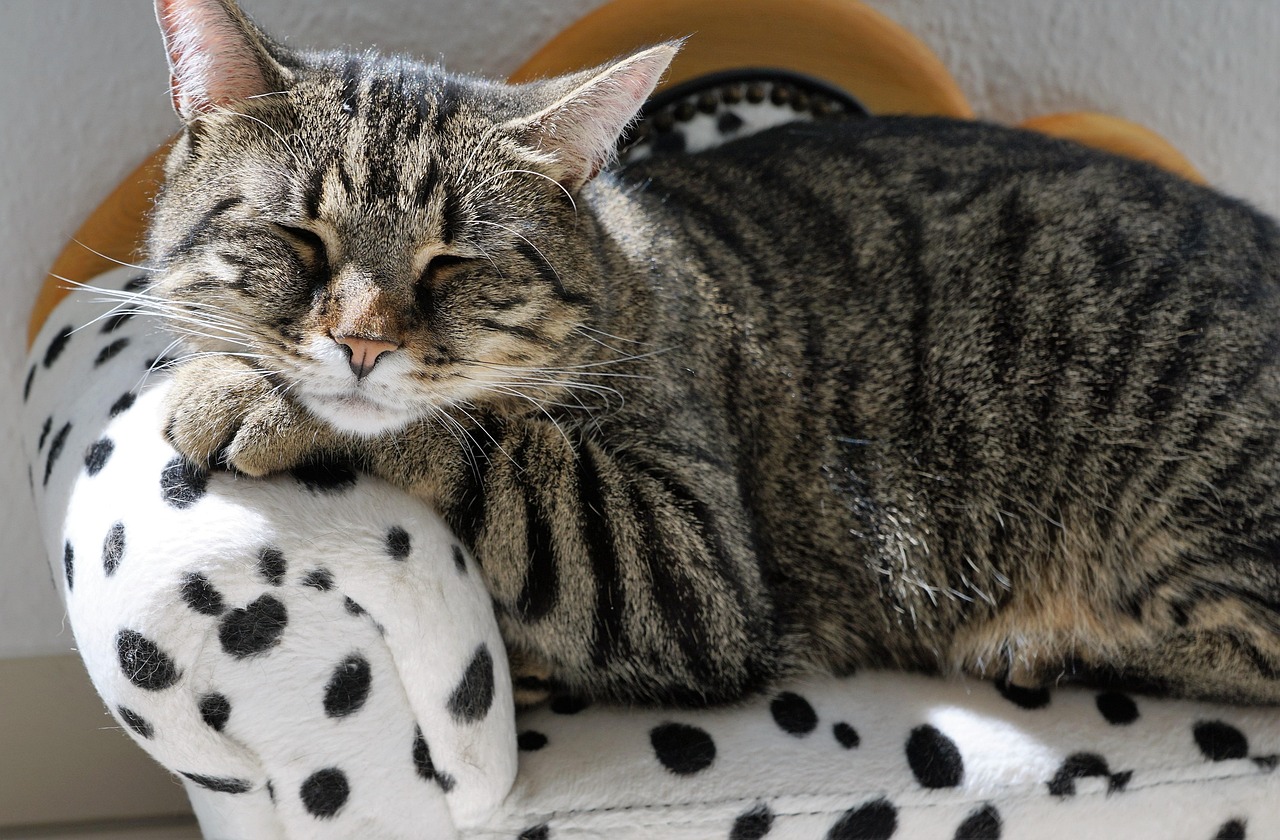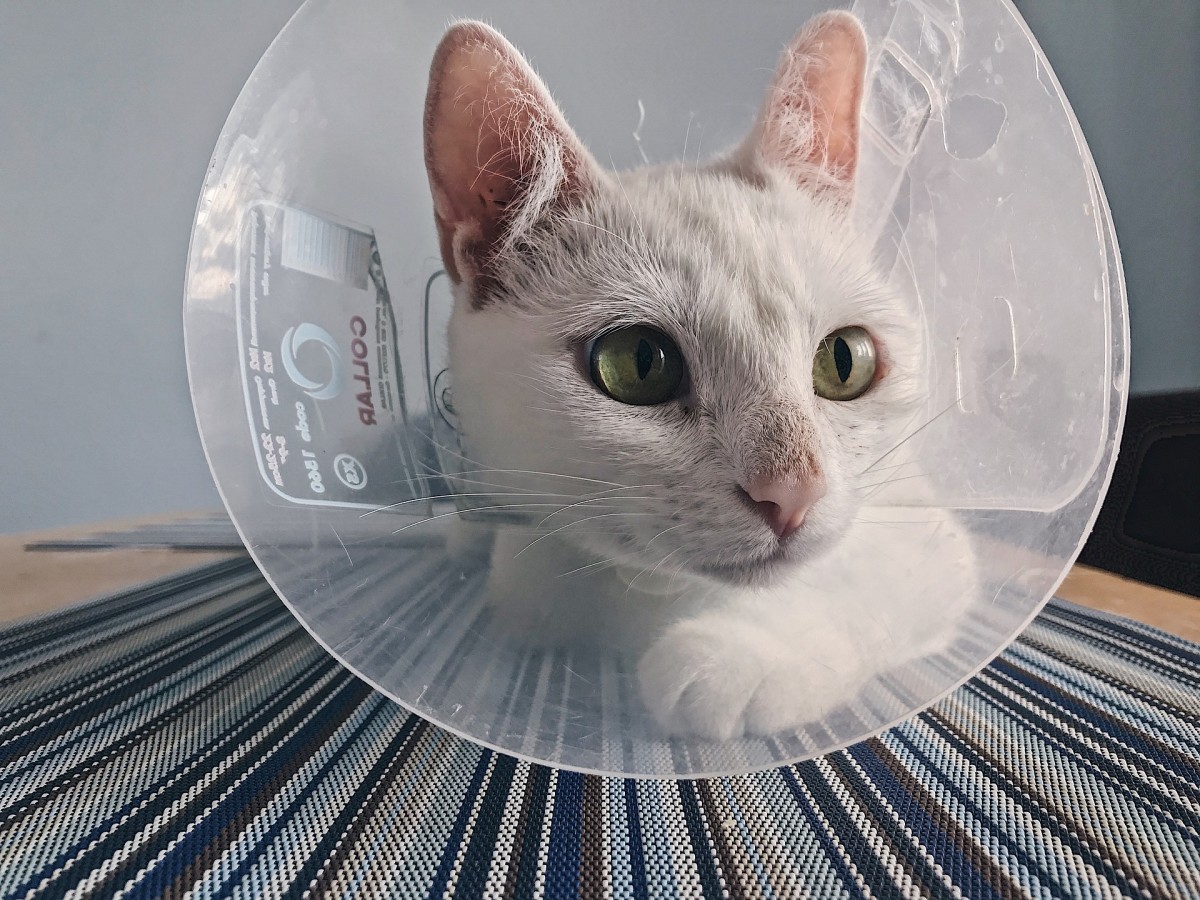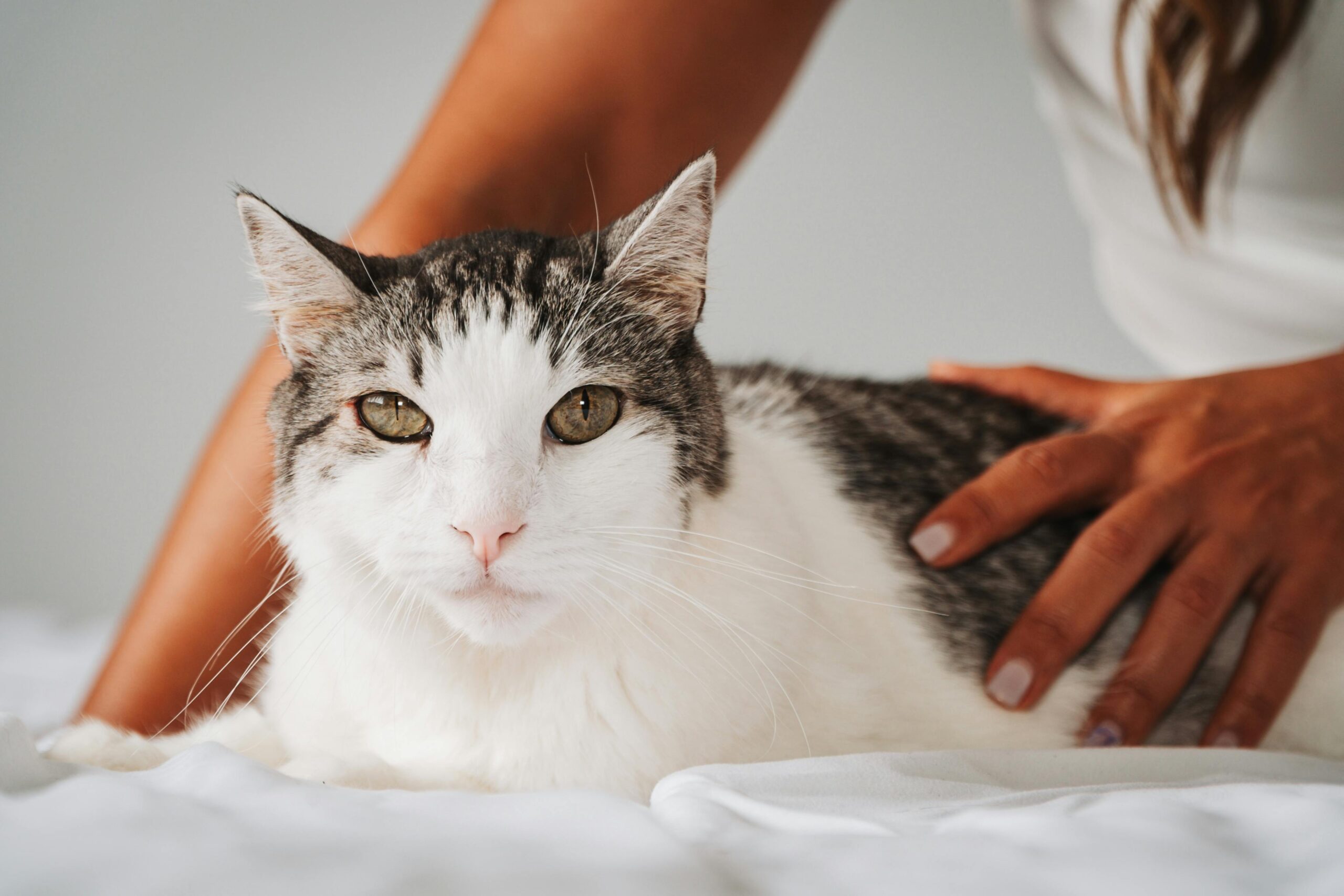Can Cats Catch a Cold?
Yes, cats can catch a cold, but here’s an interesting fact that might surprise you: they can’t catch them from you or your dog. That’s because cats get their own feline version of a cold, and it’s caused by completely different viruses than the ones that make humans sick. In rare cases, they can also develop flu or even pneumonia, so it’s important to know what to do if you notice your cat sneezing, sniffling, or acting a bit under the weather. Below, we’ll offer insight into what causes feline upper respiratory infections (or ‘URIs’; basically, these infections affect the nose, throat, and sinuses), how they spread, and how to help your cat feel better and bounce back quickly.
Are Cat Colds Contagious?
Unfortunately, yes. Feline respiratory viruses spread easily between cats through direct contact, grooming each other, sharing food or water bowls, or even fighting. Furthermore, even indoor cats can pick up colds from contaminated items like bedding, toys, or litter boxes. The infection spreads so readily because these pesky viruses can hang around in the environment for several hours to days.
If your indoor cat suddenly starts sneezing, it’s worth checking for any potential sources of contamination and giving your vet a call.
Can My Cat Catch a Cold From Me?
Here’s some good news: your cat cannot catch your cold, and you can’t catch theirs either. The viruses are completely species-specific. When we say a cat has a “cold,” we’re essentially describing symptoms that are similar to human respiratory illness. Nevertheless, the actual viruses causing these symptoms are entirely different:
In cats:
- Feline herpesvirus (FHV-1) causes about 50% of cat colds
- Feline calicivirus (FCV) causes about 40% of cases
- These viruses only infect cats; they’ve evolved specifically to target feline cells
In humans:
- Rhinoviruses cause most human colds
- Other culprits include coronaviruses (not COVID-19) and parainfluenza viruses
- These viruses have adapted to infect human cells only
The biological barrier between species means you can safely cuddle your sick cat without worrying about catching their cold!
Can Cats Catch a Cold From Dogs?
Upper respiratory infections in pets typically spread within the same species; cat to cat or dog to dog. Cross-species transmission is extremely rare. You’ll be pleased to know that your cat catching a cold from your dog (or vice versa) is highly unlikely: our pets generally keep their illnesses to themselves and don’t pass them to other species or humans.
Important note: Cold-like symptoms in dogs and cats can sometimes indicate kennel cough (infectious tracheobronchitis), which is more common in dogs. This highly contagious respiratory disease needs veterinary treatment.
How to Prevent Contact With Sick Animals
When asking “Can cats catch a cold?” the next question is usually “How do I protect mine?” Here’s what helps:
- Consider skipping catteries and boarding facilities during outbreaks; cats in these environments can easily expose each other to infections
- Keep indoor cats indoors; they face a much lower risk than outdoor cats (who interact with strays)
- Isolate sick pets right away (if you have multiple cats, separate the sick one from healthy pets until they fully recover)
- Quarantine new cats for at least two weeks before introducing them to other cats
- It’s always a good idea to wash your hands and change clothes before handling your own pets
What Are the Symptoms of Cat Colds?
Signs of a cat cold mirror human cold symptoms, and typically last 5-10 days. Watch for:
Common symptoms:
- Sneezing (wet or dry)
- Nasal congestion or sniffles
- Runny or crusty nose
- Watery, red, or squinting eyes
- Coughing or gagging
- Mild to moderate fever (normal cat temp is 100.5-102.5°F)
- Less interest in food or water
- Sleeping more than usual or seeming tired
Severe symptoms needing immediate vet care:
- Ongoing or bloody sneezing
- Thick yellow-green nasal discharge
- Severely swollen or crusted-shut eyes
- Trouble breathing or labored breathing
- Wheezing or open-mouth breathing
- Complete loss of appetite for more than 24 hours
- Dehydration (dry gums, skin doesn’t bounce back when pinched)
- Bluish-purple gums (cyanosis; this is an emergency)
- Extreme lethargy or inability to stand

Source: Photo by Sam Lion
How to Help Your Cat Feel Better at Home
Mild cat colds usually respond well to supportive care at home. Here are some tips that work well:
Keep Them Clean and Comfortable
- Gently wipe discharge from their nose and eyes several times daily using these pet-safe wipes
- Run a humidifier near where they rest to add moisture to the air and ease congestion (this helps reduce coughing and sneezing)
- Keep in mind that giving your pet extra warmth with a cozy blanket in their favorite spots helps; sick cats often look for warm spots
- Keep their face clean (dried discharge can block airways and irritate their skin)
Encourage Eating and Drinking
Cats rely heavily on smell to work up an appetite. When their nose is stuffed up, they often stop eating. Here’s how to tempt them:
- Warm their food slightly (test temperature first); warming releases aromas that can get through congestion
- Serve up strongly scented foods like tuna, sardines, or fish-based wet food
- Add some flavor boosters like a bit of tuna juice or low-sodium chicken broth (skip onions, garlic, and chives because they’re toxic)
- Try different textures; some sick cats prefer pâté while others want chunks in gravy
- Give them smaller meals more often rather than large portions all at once
Hydration is really important in this situation. Like us, cats with colds can become dehydrated very quickly. You want to keep multiple fresh water bowls available. Why not consider a cat water fountain? Many cats enjoy drinking more from running water!

Keep Things Clean
Cleanliness helps prevent reinfection and quickens recovery:
- Change bedding more frequently than usual
- Clean food and water bowls daily with hot, soapy water
- Scoop and clean litter boxes daily
- Clean toys and other items your cat uses regularly
- Keep the room well-ventilated but draft-free
Supplements That May Help (Ask Your Vet First)
With veterinary guidance, certain supplements can support recovery:
L-Lysine:
- An amino acid (a building block of protein) that may help suppress feline herpesvirus replication
- Typical dose is 250-500mg daily
- As such, most effective when started early in the infection
- Research shows mixed results, but many vets still recommend it
Probiotics:
- Support gut health and immune function
- Especially helpful if antibiotics are prescribed
- Look for feline-specific formulas
Immune support:
- Some vets recommend specific immune-supporting supplements
- Always consult your vet before adding any supplements

Source: Photo by Sam Lion
Boost Immunity By Reducing Stress
Stress is known for weakening the immune system; therefore, stressed cats are more likely to get infections and endure a slower recovery. Some tips to make them feel calm and comfortable:
- Try Feliway pheromone diffusers to promote a calming atmosphere (pheromones are natural chemicals that help cats to feel safe)
- Cut down on household disruptions and loud noises
- Show them safe hiding spots
- Stick to a routine as much as possible
- Spend quiet time with them if you can
When to See a Veterinarian
If you think your cat has a cold, veterinarian Dr. Mark dos Anjos recommends booking an appointment with your vet to examine them. He stresses the importance of seeing your regular vet as soon as possible because sometimes the issue isn’t simply a cold; it could be due to conditions like cancer and avian flu, which may respond to treatment early but not later. So when people ask, “Can cats catch a cold, and will they get better on their own?” here’s the takeaway: although most cat colds naturally go away in one to two weeks, the quicker you address any issues, the faster your pet’s recovery will be.
Please call your vet right away if:
- Symptoms last longer than 10-14 days
- Things get worse instead of improving after 3-4 days
- They stop eating or drinking for more than 24 hours
- Breathing becomes labored, or they breathe with an open mouth
- Eyes are crusted shut or very swollen
- Nasal discharge turns thick and yellow-green
- They develop mouth ulcers (painful sores, drooling, pawing at the mouth)
- Eye ulcers develop (excessive squinting, cloudiness, visible damage)
- Fever continues beyond 3 days
- They seem disoriented or extremely lethargic
Emergency situations:
- Bluish gums (cyanosis)
- Severe difficulty breathing
- Collapse or inability to stand
- Seizures
Kittens, senior cats, and cats with weakened immune systems face a higher risk of complications like pneumonia (a serious lung infection), which can be life-threatening without treatment.
What Treatment Might Your Vet Recommend?
For mild cases, vets typically recommend supportive home care and can help guide you. For more severe infections, therapies might include:
Medications:
- Antibiotics for secondary bacterial infections (not for the virus itself)
- Antiviral medications like famciclovir for severe herpesvirus infections
- Anti-inflammatory drugs to reduce the fever and discomfort
- Eye medications (drops or ointments) for conjunctivitis (pink eye) or ulcers
- Appetite stimulants if your cat refuses to eat
Supportive care:
- Subcutaneous fluids (fluids given under the skin) for dehydration
- Nutritional support or feeding tubes in severe cases
- Nebulization treatments (breathing treatments with medicated mist) to ease breathing
- Hospitalization for severe pneumonia or complications
Do Cat Colds Go Away on Their Own?
Most cat colds do resolve naturally within 7-14 days without intervention. However, “wait and see” isn’t always the best approach. Complications can develop quickly, especially in:
- Kittens under 6 months
- Senior cats over 10 years
- Generally speaking, cats with compromised immune systems
- Unvaccinated cats
- Cats with chronic conditions
Early veterinary care speeds recovery, helps prevent complications, and keeps your cat comfortable. It’s always better to err on the side of caution.
How to Protect Your Cat From Colds (Prevention Is Key)
Cats are less likely to catch a cold if you do all you can to prevent it in the first place. The FVRCP vaccine (Feline Viral Rhinotracheitis, Calicivirus, and Panleukopenia) protects against the two main viruses causing cat colds. Although vaccination doesn’t guarantee your cat will never get a cold, it can significantly reduce the severity.
Typical vaccination schedule (talk to your vet about the best schedule for your pet):
- Kittens: Series starting at 6-8 weeks, boosters every 3-4 weeks until 16 weeks
- Adults: Booster at 1 year, then every 1-3 years depending on risk factors
Other Prevention Strategies
- Keep your pet indoors to reduce exposure to infected animals
- Practice good hygiene; wash your hands after handling other cats
- Don’t share their food bowls, water bowls, or litter boxes between them
- Quarantine new cats before introducing them to resident ones
- Feed a high-quality diet for better immune function
- Lessen stress with toys, scratching posts, and perches
- Schedule regular vet checkups to catch problems early
What Are Chronic Carriers?
Some cats who recover from feline herpesvirus become what’s known as ‘chronic carriers’. The virus stays dormant (inactive) in their system but can wake up during times of stress. This situation can cause periodic flare-ups throughout their life. You can manage this problem by:
- Reducing stress as much as possible
- Considering long-term L-lysine supplementation (ask a vet)
- Watching for early signs of flare-ups
- Keeping them separated from other cats during active outbreaks
- Following excellent preventive care
Final Thoughts: Can Cats Catch a Cold?
Yes, cats can catch a cold, but with proper care, most recover completely within a couple of weeks. The key is recognizing symptoms early, offering supportive care at home, and knowing when to call your vet.
Remember that a cat can’t catch a cold from a human, but they can definitely pass their respiratory infections to other cats in your household. Isolation, good hygiene, and vaccination are your best tools for preventing any spread.
If you’re ever unsure whether your cat needs veterinary care, please trust your instincts. If in doubt, it’s always better to check with a professional than to wait and risk complications.
Has your cat had a cold? What worked best for helping them recover? Share your experiences below! Remember, this article provides general information and should not replace professional veterinary advice for your specific situation.
Sources:
- Cornell Feline Health Center – Feline Herpesvirus
- Cornell Feline Health Center – Calicivirus
- Cornell Feline Health Center – Feline Vaccines
- VCA Animal Hospitals – Upper Respiratory Infections in Cats
- VCA Animal Hospitals – Pneumonia in Cats
- American Association of Feline Practitioners – Feline Vaccination Guidelines
- Feliway – Clinical Studies
- VCA Animal Hospitals – Kennel Cough in Dogs
- PetMD – Upper Respiratory Infection in Cats
- International Cat Care – Cat Flu




